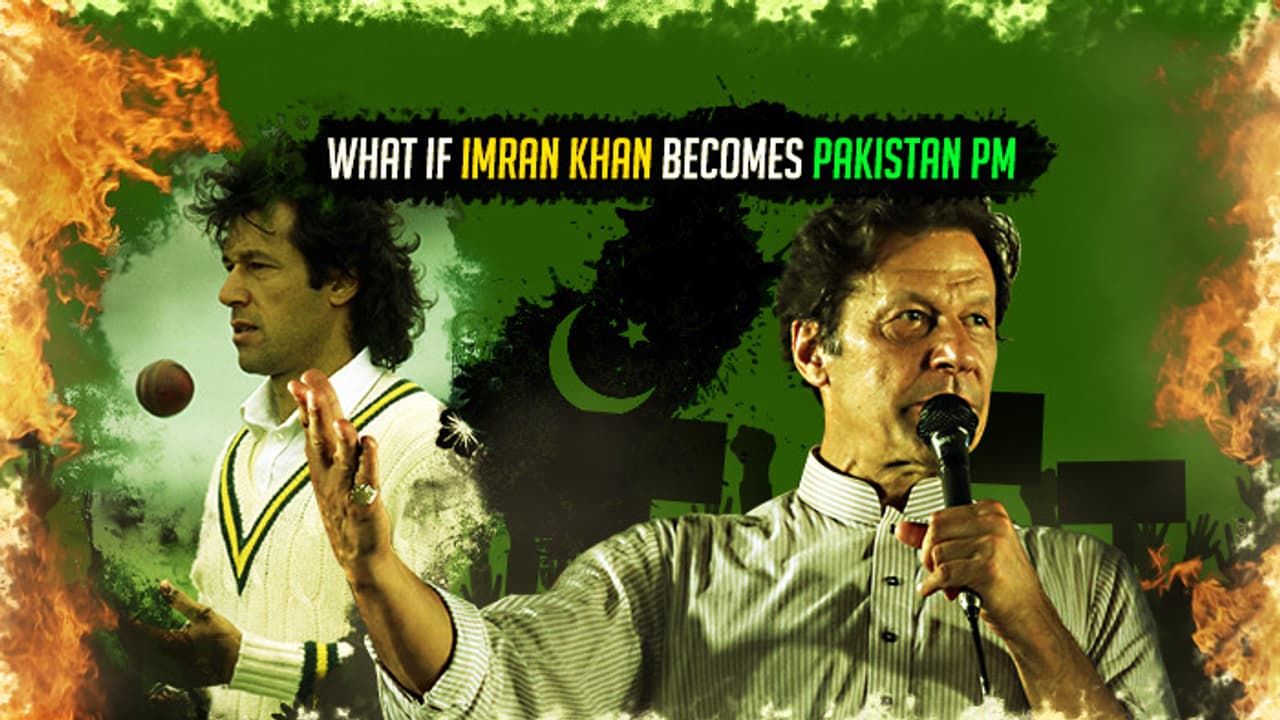If Imran Khan’s Tahrik-e-Insaaf wins the general election of Pakistan, or it forms the government by leading a coalition of parties, these are the foreseeable implications for India, Pakistan's domestic politics, Pakistani cricket, Pakistani society and that country’s international relations
After an election process that saw a lot of violence and bloodshed, early trends from the counting of votes suggest that Imran Khan’s Pakistan Tahrik-e-Insaaf will emerge as the single largest party. It will, the trends suggest, need to cobble up an alliance to be able to form the next government of Pakistan. If that happens, one foresees the following scenarios.
Military-diplomatic challenge for India
Sportspersons normally stay away from politics, but even at the stage when Imran Khan was an active member of the Pakistan cricket team, he would comment off and on about Kashmir. He is also said to have prevailed upon the Pakistani umpires of the era, notorious for their partiality at a time when umpires from a neutral country was not a rule, to tilt close matches in favour of his team. India must, hence, brace for a belligerent Kashmir policy under Khan’s leadership. While our soldiers will be on their toes, guarding the LoC and the international border with Pakistan, the opposition in India will turn shrill, questioning why India’s Pakistan policy is ‘not working’.
Domestic politics of Pakistan
Our readers may also recall with how much awe the members of the Pakistan cricket team used to look up to Khan when he was their captain. While he is said to enjoy the support of Pakistan Army, the de facto rulers of that country for all occasions, he is likely to impose a strict disciplinary regime on his council of ministers.
Given the bellicose attitude of Khan, there will be no resolution of the Gilgit-Baltistan issue, let alone an end to the Balochistan crisis.
Whatever final tally Tahrik-e-Insaaf emerges with when all votes have been counted, it will be a slim majority. This means political instability in a country that already sits on the tinderbox of terrorism and insurgency or freedom movement on at least three fronts: Baloch demand for freedom, cries for human rights in Pakistan-occupied Kashmir and a now diminished Mohajir movement by descendants of people who had migrated from India in 1947.
Economy
Pakistan is virtually in a state of bankruptcy. Soon, it needs to approach the World Bank and/or the IMF with a begging bowl. These international agencies will, however, want to be assured of Pakistan’s repaying capacity — especially in the light of the fact that it is unable to repay the debt of its all-weather ally China. The escalation with India will drain the Pakistani exchequer all the more while the IMF would like Pakistan to withdraw from the China-Pakistan Economic Corridor (CPEC) — an economically unviable proposition that drains out that country’s economy besides implying an abject surrender of Pakistani interests to China. Cheques worth over Rs 5 billion given to the contractors working on different CPEC projects have bounced.
Cricket
This is an obvious expectation from Khan. The thoroughly corrupt Pakistan Cricket Board is a house that has to be set in order. That country needs to develop a model like India’s Ranji Trophy or England’s county cricket to nurture domestic talent. Khan used to lament the absence of such a sports structure in his country while he was playing (a commercial IPL-like tournament will not be feasible in Pakistan, given its association with terrorism). It’s to be seen whether he pursues his dream of developing domestic cricket infrastructure on gaining power.
Society
In a largely feudal society, the end of the era of the Bhuttos and Sharifs — claimed and celebrated by certain commentators — marks the end of nepotism alone. The rise of a successful cricketer in politics, Imran Khan, with thousands of people looking up to him for deliverance a few years ago when he had occupied the centre stage with a Canadian Pakistani priest, demonstrates that society’s thriving feudal attitude where the rich and mighty are revered and sought out for leadership. The alleged ill-gotten riches of the family of Nawaz Sharif and the ignoble epithet of “Mr 10%” that Asif Zardari had earned for himself could not have been possible without a feudal attitude of Pakistani society as much as its corrupt governance mechanisms.
World
The charm of the alleged Casanova should help in Pakistan’s PR exercise in the comity of nations to a limited extent. Better international relations hardly depend on a presentable face on television screens exchanging pleasantries with some romantic Democrats from the US and Labour Party upstarts from the UK. Imran Khan ought to reckon that heightened tensions with India and dangerous Army-LeT-HuM-JeM liaisons would make Pakistan lose whatever credibility it is left with.
